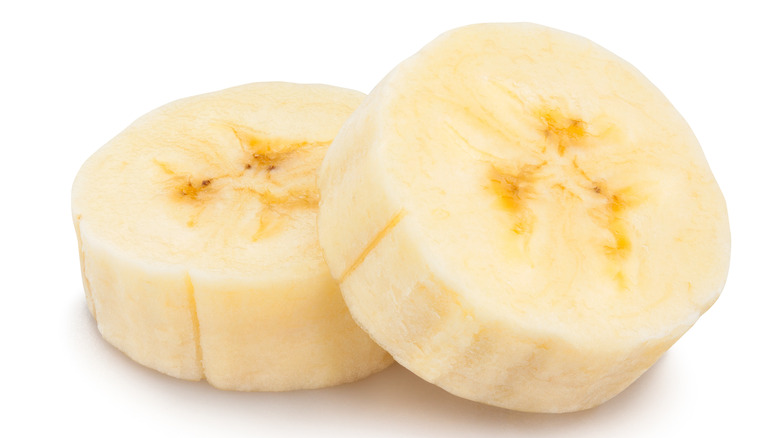Why Eating Bananas Can Help You After You Have Surgery
Bananas don't quite have the best reputation for being a nutritious fruit. The riper a banana is, the less fiber it has. Even with that being said, however, a ripe banana provides 10% of your daily value of fiber, according to WebMD. The fiber in bananas plays a role in making sure your cholesterol and blood pressure levels are where they should be. It can also relieve inflammation.
It's no secret that bananas are full of potassium. In fact, a medium one can carry 13% of your daily value. Potassium is essential for lowering blood pressure, reducing the risk of stroke, preventing kidney stones, and catering towards healthy and strong bones and muscles.
In addition, Healthline says bananas are ideal for improving blood sugar levels, supporting heart health, aiding in weight loss, and replenishing the body after a workout. Another key benefit of bananas that Healthline mentions is digestive health, and this can be particularly important post-surgery.
How bananas improve gut health
If you've ever felt sick after surgery, you understand how debilitating it can be. A 2012 study published in Annals of Palliative Medicine found that 30% of people suffer from nausea and vomiting after having surgery. Eating foods that energize the body and position it to recover is key. Bananas can help you do just that.
According to Healthline, a medium banana is just 105 calories and contains 22% of the daily value you need for vitamin B6. Bananas are a staple of the BRAT Diet, which per Cleveland Clinic, stands for bananas, rice, applesauce, and toast. This diet is usually suggested when stomach issues arise and can also be recommended if you're nauseous after surgery.
Because bananas are full of potassium, Everyday Health says they can help restore that nutrient when it's lost due to vomiting. WebMD credits bananas as being a good source of prebiotics, which feed the probiotics in your gut. This can also be helpful if diarrhea, lactose intolerance, gastrointestinal infections, or irritable bowel syndrome are a concern.


